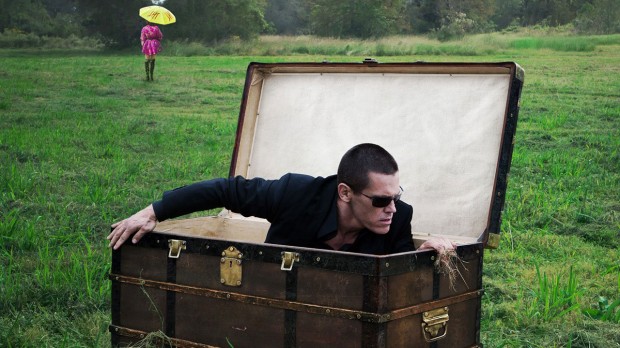A remake of the Korean cult-classic Oldboy is opening in theaters across the nation tomorrow. The movie stars Josh Brolin, Elizabeth Olsen, and Samuel L. Jackson and is Directed by Spike Lee who is known for his socially charged movies like Do the Right Thing. The film’s Writer and Co-Producer Mark Protosevich discusses in an interview working on the controversial remake and talks about the process of getting it to the screen.
What was your approach to the film? How much research into the original did you do and what did you do to make it your own?
Some people’s reaction to hearing we were going ahead with the remake was, “Typical Hollywood, just exploiting another film just to make money!” and my reaction is, “You’ve got to be kidding me!” because I defy you to show me someone who watches the original film and thinks, “Wow! An English language version of this is going to clean up at the box-office! It’s going to be the next Transformers!”. I was and will always be a huge fan of the original. Passionately loved it, saw it many times before. Years ago I think I read something in the trades that Justin Lin was thinking about doing a remake of Oldboy and my first reaction was “Ug, really?” which is I think is the reaction of a lot of people if you really love the original movie. It upset part of me. That instinctual gut reaction is, “What’s wrong with just leaving the Original alone?”. However, there is a part of me that loves films and their remakes- Wages of Fear and Sorcerer, both versions of The Thing. I love both those movies! It is possible to do, and hopefully with integrity and honor, and some respect to the original.
The reason I got involved originally was that I was approached by Will Smith, because we had worked together on I Am Legend, and Will wanted me to write this version and Stephen Spielberg was interested in directing. That was five years ago. That version of it never came to fruition. But I had done so much research and spec wrote a thirty page treatment about what I wanted to do and became very passionate about the project. The producers still wanted to go ahead with a movie but it didn’t have a director, it didn’t have a star, and it wasn’t going to be as much money without a big studio involved now. I was in though, I wanted to do this. Here was an opportunity to do something provocative, challenging, unsettling, and not your normal movie and that’s what drove us.
Besides budget, what would you say is the biggest difference between the Will Smith/Steven Spielberg version and the film that got made?
The Smith/Spielberg version really never got close, we had some initial meetings and we talked about it. Steven’s son was a big fan of the original and basically said to him, “You can’t cop out on this, it has to be raw, it has to be disturbing, you have to keep the ending”. He was on board with that, though I don’t know if that ever got to Will. In my treatment I wasn’t thinking about Steve Spielberg or Will Smith at all. When you’re writing, your first draft is your chance to write how you would want to do this movie, they can always change it, but if you don’t put down what you want to do in that first version nobody is ever going to see, no one is going to know what you wanted to do. That version was just purely how I’d like to do this. And the existing film is incredibly close to what that original treatment was.
As a screenwriter who has been re-written or where you are coming along after a change in screenwriters, how do you reconcile yourself with that aspect of the business, that there is going to be that mutability to what you’re writing?
Masochism. It can be like the human-centipede of screenwriters sometimes. I don’t like re-writing other people’s scripts, I’m not a big re-write guy. I don’t generally do that work. I like to be the first guy on a project and I’m naive enough to think that I’m going to do such a good job that they’re going to stick with me the entire way. That’s only happened twice, and I’ve been writing professionally now for almost twenty years. So, yeah chances are you are going to be replaced. On Oldboy when it was clear that the budget was going to be much less and they weren’t going to be able to pay me what I would have been getting if it was with a bigger studio I knew that but I still wanted to do it. I said, “I don’t care, I want in. But if you guys like my script and stick with me I want to be a Co-Producer on it and I want to be involved”. And that’s what happened, I had their support, I had Spike’s support. I was on the set for almost the entire production down in New Orleans. Which is not the usual thing that happens.
By Laura Gaddy

